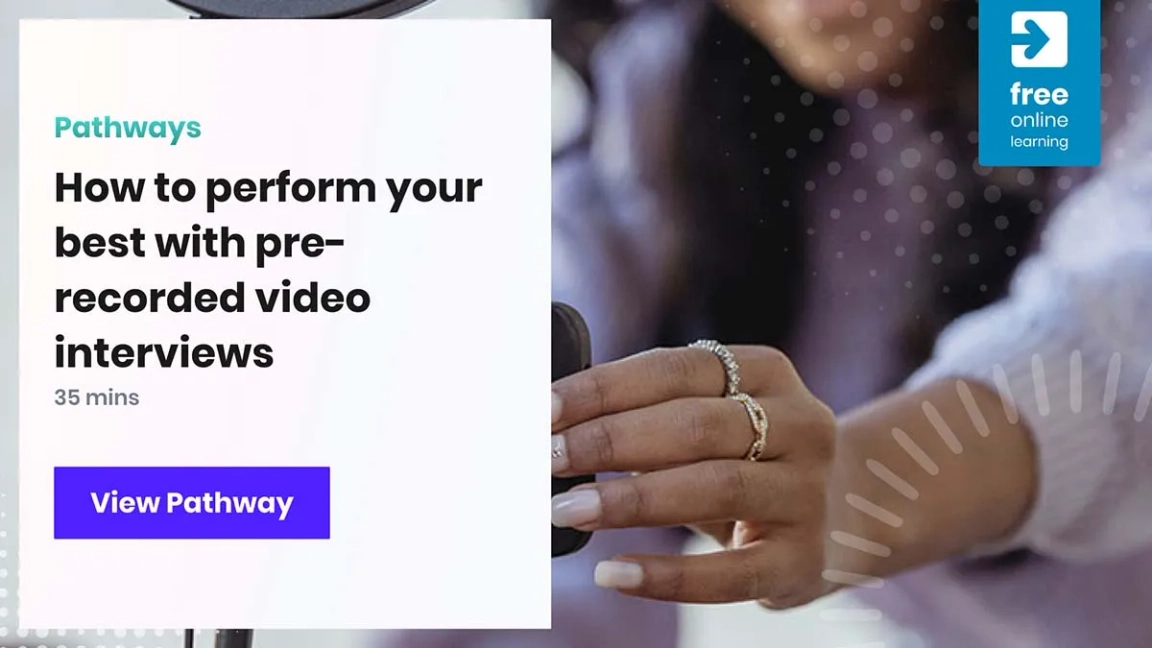Interviews and assessment centres
Types of interview
22 Jun 2023, 13:22
What to expect from the different types of job interview used in graduate recruitment.

The selection process for a graduate job may involve one or more interviews. Below are the most common types of interview you may come across.
Telephone interviews
Some graduate recruiters do their initial screening through telephone interviews. You should prepare for these as seriously as for a face-to-face interview. The purpose of a telephone interview is often to check out whether you are a serious applicant, so prepare for 'why this career/company?', 'what do you have to offer?' type questions.
Because you can't see the interviewer (and they can't see you), you won't get the normal visual clues. Much of the impact you make will come through your voice, so it is even more important that you sound animated and enthusiastic. Try imagining that the other person is in the room and you are talking directly to them. In fact, in telephone interviews it can be easier to hide nerves and relax.
Although you can't be seen, some people find it helpful to change into formal clothes to get into a business-like frame of mind. And if you smile it will come across in your voice.
Tip: Try not to accept a position on the basis of a telephone interview only. It will be difficult to assess the culture of the organisation without visiting their offices.
Tips for telephone interviews
- Ensure you have a suitable environment where you won't be disturbed.
- Have your CV or completed application form next to you.
- Practise before you phone.
- Prepare a smooth opening.
- Avoid distractions: don't drink, eat or smoke.
Second interviews
Second interviews are generally face to face and are likely to be more detailed than the first interview. Second stage selection can last from a couple of hours to over a day, and may also involve assessment centres. There may be some tests either before or after the formal interview (you'll normally be warned in advance if this is the case). You may also be shown round the offices by the interviewer or another member of staff.
Tips for second interviews
- These will go into more depth than the first interview, so be prepared.
- Try to treat this as a business meeting, not an interrogation.
- You will create a good impression if you ask questions as well.
Panel interviews
In a panel interview, there will be two or more people asking the questions: probably a mixture of personnel specialists, technical and line managers. Panel interviews are often easier than the one-to-one interviews, and can be fairer as they don’t depend on one person’s opinion.
In some panel interviews, different people may ask you questions without an obvious logical sequence. In others, each panel member may ask questions around a particular theme (generally their own area of interest/expertise).
Tips for panel interviews
- Try to find out in advance who's who on the panel. This can help you choose how you answer their individual questions.
- Give your attention to whoever is speaking at the time.
- When answering a question, give most of the answer to the person who asked the question with brief glances to the others.
- Don't be thrown if one of the interviewers starts scribbling notes or looks bored. Panel members who are not from the HR department may not be experienced interviewers.
- You will sometimes be asked the same question twice. This is likely to be a mistake, where someone wasn't paying attention. Just answer the question again.
Some recruiters may just want you to expand upon your application form or CV, but interviews are increasingly structured to look for particular competences based on the selection criteria for a specific job.
Technical interviews
A technical interview is designed to test your specialist knowledge. If you are applying for a technical job, an interviewer might show you a device and ask you to explain how it works, or show you a wiring diagram or a line of computer code and expect instant analysis. Even if they don't use visual aids, they will quiz you in depth about your course.
Tips for technical interviews
- Many final year students forget what they studied in previous years. Review this ahead of the interview. If you have listed your course details on your application form, you'll need to be able to talk convincingly about any aspect, for example second-year projects.
- If you have project work or vacation experience that is particularly relevant, produce a short digest of the information and take it with you to the interview. You can use it to illustrate your answers or you can leave it with the interviewer when you finish.
- Even though it may be a technical interview, the interviewer will still be looking at other, more personal, skills. There aren't many jobs that require only technical skills.
gradireland Editorial advice
This describes editorially independent and impartial content, which has been written and edited by the gradireland content team. Any external contributors featuring in the article are in line with our non-advertorial policy, by which we mean that we do not promote one organisation over another.


